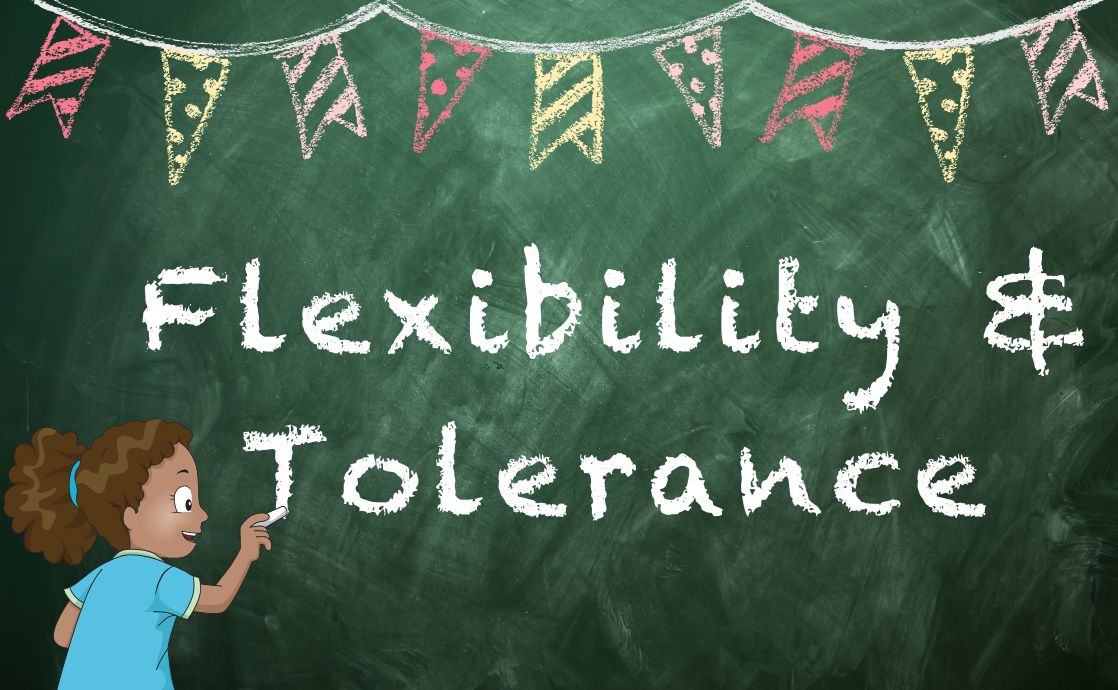The quest for tolerance and flexibility is at the heart of harmonious living and is paramount in our increasingly interconnected world. The Bahá’í teachings provide a framework that encourages individuals to cultivate these virtues, fostering unity and understanding amongst diverse communities. This article delves into how one might embody the principles of tolerance and flexibility in daily life, thereby promising a significant shift in perspective that enriches personal and collective experiences.
Understanding Tolerance: A Foundational Virtue
Tolerance, as elucidated in Bahá’í philosophy, transcends mere acceptance of differences; it is an active engagement with the diversity of thought, belief, and culture that characterizes humanity. This virtue implores us to appreciate the underlying unity of all people, recognizing that, despite disparate backgrounds and ideologies, every individual contributes to the richer tapestry of life.
The first step towards adopting a more tolerant stance is cultivating empathy. Empathy involves not only understanding another’s feelings but actively seeking to experience life from their perspective. It necessitates setting aside preconceived notions and biases, which can often cloud judgment. Engaging with individuals whose experiences differ markedly from our own can challenge us to reconsider our positions, unveiling the depth of human experience and fostering a more profound connection.
The Role of Self-Reflection
In the pursuit of tolerance, self-reflection emerges as an indispensable tool. Taking moments to examine one’s own beliefs and the origins of those beliefs can illuminate biases that may otherwise remain unchallenged. Self-reflection encourages individuals to question their assumptions, thus enabling a conscious commitment to progress. Through meditation and contemplation, one can arrive at insights that deepen understanding and tolerance.
Moreover, it is crucial to recognize that tolerance does not imply passive acceptance. Instead, it embodies a dynamic engagement with differing views, inviting constructive dialogue. When confronted with ideas that seem in stark opposition to our own, framing these conversations in a constructive manner can lead to mutual understanding and respect. This approach nurtures an environment where divergent perspectives are not only tolerated but valued for their potential to enhance collective wisdom.
Flexibility: Adapting to Change
Flexibility, as a complementary virtue to tolerance, is essential in navigating the complexities of life. It pertains to one’s capacity to adapt to new situations and diverse viewpoints, embracing change rather than resisting it. In a world that is constantly evolving, the ability to remain open and responsive is invaluable.
Adapting to change involves a mindset that welcomes new ideas and perspectives. This openness invites innovation and creativity, allowing individuals to pivot when faced with challenges. The Bahá’í teachings emphasize the importance of perseverance; however, flexibility entails knowing when to adjust one’s approach strategically without compromising core values and beliefs. This balance is crucial in maintaining integrity while fostering personal growth.
The Power of Community Engagement
Engaging with one’s community is a practical application of the virtues of tolerance and flexibility. Actively participating in community service, interfaith dialogues, and social initiatives expands horizons and cultivates a richer understanding of various societal challenges. Through collaboration, individuals can share their unique perspectives, leading to innovative solutions grounded in collective wisdom.
Furthermore, community engagement presents opportunities to model tolerance and flexibility. By demonstrating an accommodating spirit, individuals can inspire others to embrace these virtues, creating a ripple effect that fosters a more inclusive environment. The synergy created through collaborative efforts can amplify tolerance and flexibility, enabling communities to thrive amidst diversity.
Strategies for Cultivating Tolerance and Flexibility
To nurture these virtues effectively, several strategies can be employed:
- Active Listening: Practicing active listening during conversations allows individuals to absorb varying points of view without the impulse to immediately respond or rebut. This practice fosters understanding and encourages deeper dialogues that can yield fruitful insights.
- Educational Initiatives: Engaging in educational pursuits related to different cultures and philosophies enriches one’s perspective and nurtures a tolerance for differences. Workshops, seminars, and reading diverse literature can serve as invaluable resources in this journey.
- Mindfulness Practices: Incorporating mindfulness techniques such as meditation can enhance emotional intelligence, fostering an awareness of personal reactions to differing viewpoints. This awareness facilitates greater flexibility in responding to change and challenges.
- Seek Constructive Criticism: Actively seeking feedback from others can provide insights into blind spots in one’s understanding and attitudes. This openness demonstrates a commitment to growth and self-improvement.
- Lead by Example: Modeling tolerance and flexibility in daily interactions can influence others’ behaviors, creating a culture that values collective harmony.
Conclusion: The Promise of Transformation
The virtues of tolerance and flexibility are not merely aspirational; they are actionable commitments capable of transforming individual lives and the broader community. By embedding these principles into everyday interactions and decisions, individuals can pave the way toward a future characterized by unity and collaboration. The pursuit of these virtues challenges us to transcend our limitations and embrace the beauty that diversity offers, fostering a world where understanding and respect flourish.
As we deepen our engagement with these teachings, we unlock the potential not only to elevate our personal experiences but to contribute to a collective destiny marked by peace and understanding. The endeavor to become more tolerant and flexible is, indeed, a noble journey worth undertaking for both self and society.
